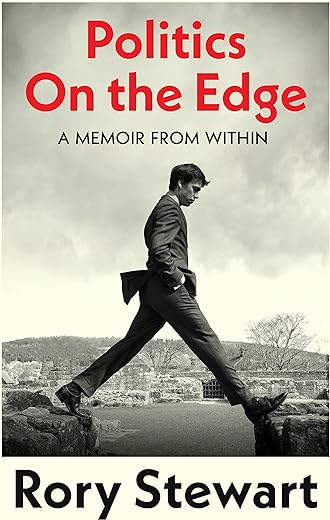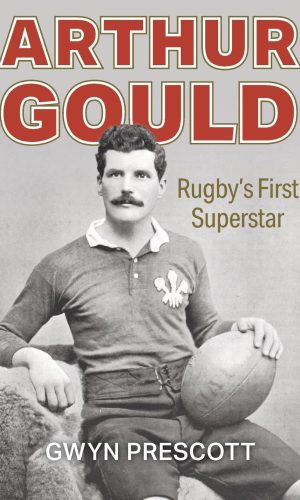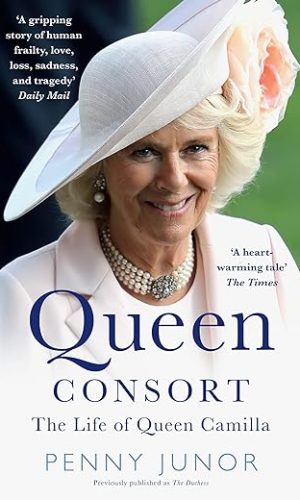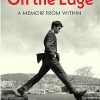Politics On the Edge: The instant #1 Sunday Times bestseller from the host of hit podcast The Rest Is Politics
£14.30£20.90 (-32%)
A searing insider’s account of ten extraordinary years in Parliament from Rory Stewart, former Cabinet minister and co-presenter of breakout hit podcast The Rest Is Politics
‘The most exceptional political memoir I’ve ever read’ ALAN JOHNSON
‘An instant classic’ MARINA HYDE
‘At last a politician who can write’ SEBASTIAN FAULKS
The Times pick for *The Biggest Books of the Autumn*
Over the course of a decade from 2010, Rory Stewart went from being a political outsider to standing for prime minister – before being sacked from a Conservative Party that he had come to barely recognise.
Tackling ministerial briefs on flood response and prison violence, engaging with conflict and poverty abroad as a foreign minister, and Brexit as a Cabinet minister, Stewart learned first-hand how profoundly hollow our democracy and government had become.
Cronyism, ignorance and sheer incompetence ran rampant. Around him, individual politicians laid the foundations for the political and economic chaos of today. Stewart emerged battered but with a profound affection for his constituency of Penrith and the Border, and a deep direct insight into the era of populism and global conflict.
Uncompromising, candid and darkly humorous, Politics On the Edge is his story of the challenges, absurdities and realities of political life and a remarkable portrait of our age.
The perfect Christmas gift for anyone who wants to understand our current political climate.
Read more
Additional information
| Publisher | First Edition (14 Sept. 2023), Jonathan Cape |
|---|---|
| Language | English |
| Hardcover | 464 pages |
| ISBN-10 | 1787332713 |
| ISBN-13 | 978-1787332713 |
| Dimensions | 16.2 x 4.1 x 24 cm |










by Frank
I bought the book as I have always been impressed by Rory from when I first heard him talk when he was involved in Iraq. He later became an MP and came across always as more interested in helping people than furthering his own career. His book gives a good insight into how parliament works and his revelations are shocking of the attitude of most of the characters there driven by their own self interest rather than looking after their constituents. The processes and the continuous churn of ministers by the PM makes it almost impossible for them to make any changes and while most ministers seem to accept this and concentrate on their careers and promotions Rory took a different route, being more driven by seeking improvements which meant he became somewhat isolated as it appears if you want to promotion you have to promote the party and the PM at all times regardless of your own beliefs. His book confirms to me my previous suspicions that individual MPs are fairly powerless and the PM and his cohorts (again not necessarily other MPs) run the show. The whole place (Parliament) needs reorganising, reducing the number of MPs and making them have training to become ministers with a knowledge of their ministerial domiains and they should be left with their ministerial posts for longer periods, sufficient to make changes. As I suspected not many MPs actually understood the proposed Brexit Agreement as it was a detailed legal document that most of the MPs didn’t have the legal knowledge to understand nor did yhey have the time to seek advice on its content only havings hours to digest it before they were required to vote on iys content. To me this became clear when the MPs where interviewed on TV none of them could explain its content which meant most of our MPs just toed the line from the whips instructions rather than the actual agreement. For me this is a complete failure of democracy and I find it totally unacceptable that MPs have no traininig to allow them to understand legal documents as they are asked to vote new laws into our legal system. In fact it seems most of the public fail to understand that most MPs have very little power or influence on anything and the whole system is a disgrace and why have our news reporters failed to publicise this failure. This is not democracy nor is it the mother of all parliaments as the British are continually told it is. The whole process needs breaking down and rebuilding and the long term MPs are mostly still acting in their own interests as it gives them a good living without influencing or doing much work.
by Dr. Rob
Despite being a life long socialist I do have a lot of respect for Rory. I have read his other books about his adventures in his younger years. He has been there done it and got the tee shirt, so no wonder he talks common sense.
His warts and all dissection of the Tory Party and the people in Government is chilling and fascinating. We, the general public, have had 12 years of this criminal govt who have simply lined their pockets, and somehow there is nothing we can do until eventually after all the pain an election will be called. I hope in his own way taking the scapel to the rotten institution in someway speeds its end – for the benefit of all of us.
by Mac McAleer
Rory Stewart has produced an interesting account of his time in formal politics. He describes his selection and election as the MP for the constituency of Penrith and the Borders, a sparsely populated area with the England-Scotland border at its northern edge. He then describes his time as a backbench MP, his constituency work and his move into the lower ministerial ranks of several departments. All the time he is energetic in his approach and willing to consider new methods. All the time he is also confronted with the difficulty of getting things done and the realisation that politics often gets in the way.
Rory Stewart had an interesting life before politics (1). He was lucky to get a constituency so quickly. He survived the premierships of David Cameron and Theresa May. As a Scot and a Unionist, he survived the Scottish Referendum. As a Remainer, he survived Brexit. But he could not survive Boris Johnson (2).
THE BOOK: Even though this is a shortened version of the draft (3), this is a hefty book of just over 450 pages. There are 26 short chapters grouped into six parts (4). Unfortunately, there are no illustrations. A map of his large constituency would have been a useful reference.
THE FRONT COVER is a black and white photograph by Phil Rigby showing Rory Stewart striding across a gap from one stone support to another. It is a simple, striking image. But what happened once the photograph was taken? Rory Stewart had to complete the action and either get both feet across or both feet back without falling into the gap.
__________________________________________________________________________________
(1) He was in the army, the Foreign Office and Iraq
Occupational Hazards: My Time Governing in Iraq
, founded a charity in Afghanistan and taught at Harvard. He also had a penchant for long walks, recounted in his walk from Herat to Kabul
The Places In Between
and his walk along the Scotland-England border
The Marches: A Borderland Journey Between England and Scotland
.
“’The problem with you, Rory’, Liz said to me, conversationally, ‘is you try to be interesting in Parliament and the media. Never be interesting.’” (Page 156, Chapter 9, “Red Box”, Talking with Liz Truss, his boss at DEFRA).
(2) “Boris Johnson, having failed to prorogue Parliament, or deliver Brexit by 31 October has called an election for December. I am no longer a Cabinet minister, having resigned as soon as Boris Johnson became prime minister on 24th July. I am no longer a Conservative since Boris Johnson has thrown twenty-one of us out of the party for continuing to vote against a no-deal Brexit. But I would not be prepared, in any case, to campaign for him or his manifesto. Since I am unwilling to run as an independent in Penrith against people I have worked with for a decade, I will soon no longer be a Member of Parliament.”
(Page 415, Chapter 26, Quaestor)
(3) “This is a highly condensed version of my experience. The first draft of this book was 220,000 words long and still covered only a fraction of the events between 2010 and 2019. I have cut half of the material entirely. Anyone interested in my involvement as a backbencher in Libya or the campaign for community hospitals, my speeches inside and outside the House of Commons, my arguments as a minister over Yemen policy and rewilding, my fight with the Government over Covid policy, or my run as an Independent to be mayor of London, would have to get their hands on the unpublished draft. For those stories are no longer included. Nor are my detailed attempts to analyse Boris Johnson, populism, the hope for the centre ground, or the place of ethics in politics.
(Author’s Note page x)
(4) CONTENTS
Author’s Note
Prologue
PART ONE
1. Suddenly Coming Alive 2. Gajumaru Trees 3. The Livestock Ring 4. The Empty Hall 5. One Nation
“’If anyone . . . is interested . . . in history’ he said gruffly, ‘you should book a guide for a parliamentary tour’. As he continued, certain hints on how he wanted Parliament to work glinted beneath the surface of his words, like shopping trolleys in a city canal. We should not regard debates as opportunities for open discussion: we might be called legislators, but we were not intended to overly scrutinise legislation; we might become members of independent committees, but we were expected to be loyal to the party; and votes would rarely entail a free exercise in judgement. To vote too often on your conscience was to be a fool and ensure you were never promoted to become a minister. In short, politics was a ‘team-sport’.”
(Page 52, Chapter 4, “The Empty Hall”, Talk given to new MPs)
“He reminded me of an eighteenth-century French cardinal: wryly observant of colleagues, capable of breathtaking cynicism, but also erudite, irreverent, poised, witty, self-mocking and engaged.”
(Page 67, Chapter 4, “The Empty Hall”, on George Osborne)
PART TWO
6. District Commissioner for Cumbria 7. Team Player 8. Select Committee
“Five minutes before the vote, George Osborne approached me outside the lobby.
‘Rory, I am going to promote you to be a minister in ten days’ time.’ He was drawing here on his reputation as the person Cameron listened to most closely. ‘But if you walk through that door,’ he said, indicating the ‘no’ lobby for the Lords Reform Bill, ‘you will, I promise, not be promoted in the rest of this parliament. You will be a backbencher for at least five years.’ I walked through the door. The bill was heavily defeated. The House of Lords was not changed. The party did not get the electoral boundary changes which it wanted from the Lib Dems. Osborne was true to his word.”
(Page 127/128, Chapter 7, “Team Player”)
PART THREE
9. Red Box 10. Particulate Matter 11. Plenipotentiary Powers 12. 2017 Election
“Hello, Secretary of State. Yes, Rory? . . .
Liz was younger than me. We had entered Parliament together and David Cameron had made her a Cabinet minister within four years – when she was thirty-eight. I was told that she had been promoted faster than anyone because she was a ‘strong media performer’. Intrigued by this I had watched a number of her interviews. In none of them had she reflected, apologised, explained, empathised, or attempted to persuade. Nor did she ever, except in the rarest cases, answer a question. Instead, she approached interviews as broadcasts: opportunities to repeat the party attack line, never giving ground, or varying her tone. I wondered how Cameron had developed any views on her skills as a minister; her ability to inspire civil servants, or be patient with difficult briefs.”
(Page 156, Chapter 9, “Red Box”, Conversation with Liz Truss, his new boss)
PART FOUR
13. ‘A Balliol Man in Africa’ 14. The People’s Political Consultative Conference
“A few weeks later, at a Conservative Party event I was approached by a close aid of a wealthy Russian, Evgeny Lebedev. She said he would like me to come to stay for the weekend at his castle in Italy. A celebrity was coming who had made her name modelling topless in the Sun.
I said, as politely as I could, that this was a joke. ‘I’ve just become a foreign minister. There’s no way I can possibly go . . . the man’s father was an officer in the KGB.’
‘Oh, don’t worry about that,’ she replied, Boris Johnson is coming, and he is Foreign Secretary.’
He went. I did not.”
(Page 219, Chapter 13, ‘A Balliol Man in Africa’, as a minister in the Foreign Office, Boris Johnson was his new boss, although he also kept his job at the DfID under Priti Patel. Evgeny Lebedev is now in the House of Lords, nominated by Boris Johnson)
PART FIVE
15. Unlearning Helplessness 16. Barking at Drones 17. Backstop 18. Resignation 19. Loving Strict
“Confronted with prisoners and prisons, I was beginning to feel some of the shock that I felt walking through a slum in Nairobi, intensified with shame at the fact that this was Britain. Despite our complacent boasts of liberal progress, government after government had left prisoners in conditions that seemed more dangerous and squalid than prisoners had experienced in the same jails in Victorian Britain. And I realised that in nearly eight years as an MP, I had hardly thought about prisons.”
(Page 261, Chapter 17, “Barking at Drones”)
PART SIX
20. The Vanishing Middle 21. Secretary of State 22. Leadership 23. Standing Up 24. Pinocchio 25. Pro-rogue 26. Quaestor
“But to put an egotistical chancer like Boris Johnson into the heart of a system that was already losing its dignity, restraint and seriousness was to invite catastrophe. As the heir to fifteen years of crisis, he would be able, like Jeremy Corbyn, to appeal to nostalgia for an imagined lost Britain, reject all traditional consensus as an establishment conspiracy, deny the complexity of society and economy, and misrepresent what Britain shared, or what it could realistically be.
He would be able to generate a tissue of evasions, half-truths and lies, to mobilise a right-wing voter base; and destroy what was left of the moderate One-Nation tradition in the Conservative Party. He would polarise an already divided country. He would damage our economy and constitution; create a weeping wound in Ireland and further alienate Scotland. His government world be ever more allergic to detail, indifferent to the truth, increasingly shameless to their support for a shameless leader, and incapable to responding deftly or thoughtfully to the problem of the modern age.”
(Page 357, Chapter 22, “Leadership”)
Dramatis Personae (4 pages)
Glossary (9 pages)
Acknowledgements (2½ pages)
Index (18 pages)
by Matej Petrasek
As someone who lived in the United Kingdom but now move abroad, it was hard to follow all events, especially during the Brexit. I found Rory Stewart’s personal account of events very interesting, compelling and truthful. One has to be careful to take autobiographies with caution. Still this was very interesting insight and one must wonder what Britain would look like if the customs union would get through or Rory got his chance to stand against Boris Johnson. Probably very different Britain would emerge or maybe completely same.
I enjoyed the read a lot. I would love to get hold of the original draft of 1000 pages. But that’s just me, aspiring and rather romantic politician-to-be wanting to learn more from someone who has done it before him.
Thank you very much Rory and good luck in reclaiming the Conservative party or starting a new one that could replace it. I know we have not heard the last from you.